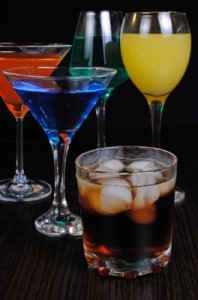
Credit: Apolonia/Freedigitalphotos.net
What Parents Need to Know About Teens and Alcohol
Every parent worries about it—your teen says they’re going one place, but they actually go to at a party. And sometimes, you don’t find out what’s really going on until you get a call from the hospital saying your teen drank way too much and is receiving medical help. As a therapist for teens, I see a lot of kids dealing with alcohol-related problems. It’s important for parents to be aware of these issues. Here are some of the biggest ones:
1. Lying About Drinking
Most teens won’t tell you the full truth about their drinking. They might downplay it or leave out key details to avoid getting in trouble. They might not tell you they’ve been drinking at all.
2. Higher Risk of Sexual Assault
I’ve worked with countless teens who have been sexually assaulted, and alcohol is involved in almost every case. While most victims are female, it happens to males too. Drinking lowers their ability to recognize unsafe situations, making it easier for someone (usually drunk as well) to take advantage of them.
3. Teens Stealing Alcohol
Since teens can’t legally buy alcohol, they often steal it—usually from their parents’ liquor cabinet or fridge. Some even take it from stores.
4. Teen Driving Under the Influence of Alcohol
You’ve probably told your teen never to drink and drive. Maybe they promised to call you for a ride if they ever needed one. But in reality, teens often end up riding with someone who’s been drinking. Sometimes, they’re the one driving. Some even think it’s safe if the driver “only smoked weed.”
5. Trying Other Drugs
Alcohol lowers inhibitions, making it easier for teens to say yes to other substances. A few drinks in, and they may experiment with drugs they’d normally avoid.
6. Risky Sexual Choices
Not all situations are assault—sometimes, teens just make choices they wouldn’t if they were sober. Drinking makes them more likely to hook up with people they barely know, leading to regret later.
7. Bad Judgment About Safety
When drinking, teens may get into cars with strangers, go to unfamiliar places, or trust people they shouldn’t. When teens drink alcohol, their ability to assess risk is lowered.
8. Ignoring Serious Problems
This problem is one of the scariest of all the issues too much drinking causes. Teens tell me things like, “My friend was super wasted. She wasn’t moving much, but I took care of her. It was fine.” This is definitely not fine. This friend likely had alcohol poisoning, but no one wanted to call for help because they were afraid of getting in trouble. People may not have even realized there was a problem. Like I said, too much alcohol fogs judgement.
9. Fear of Getting in Trouble
Teens won’t always ask for help in dangerous situations because they’re scared of the consequences. They don’t want their parents, teachers, or coaches to find out they were drinking—even if they really need some help.
10. Fights and Aggression When Teens Have too Much Alcohol
Alcohol raises testosterone levels in males, making them more aggressive. Drunken fights happen way more often than you’d think, and they can lead to serious injuries—or worse.
How You Can Help as a Parent
Your teen may not tell you everything, but they’re always watching your actions. Set a good example with alcohol, talk to them openly, and don’t be afraid to set boundaries. If you know they’ve been partying and you need more advice, give me a call. They might roll their eyes or get angry, but they need your guidance.
Helping teens grow and families improve connection,
Lauren Goodman, MS, MFT



